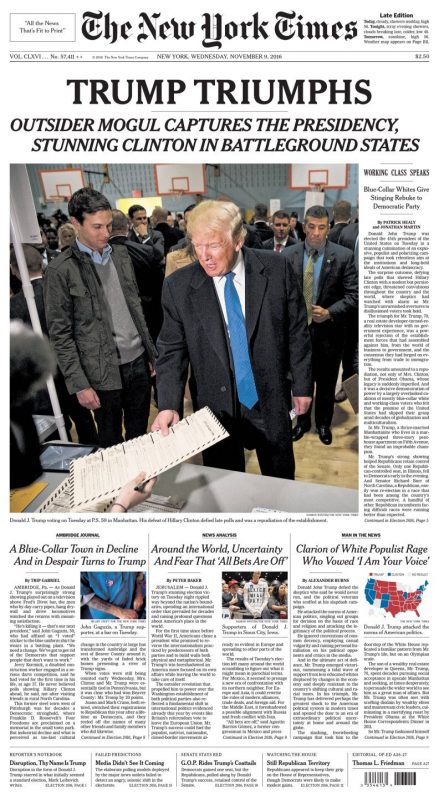 Despite attaining more than two million fewer votes than Hillary Clinton, Donald Trump was elected president of the United States.
Despite attaining more than two million fewer votes than Hillary Clinton, Donald Trump was elected president of the United States.
In Achieving Our Country: Leftist Thought in Twentieth-Century America, the Stanford philosopher Richard Rorty predicted that what he called the left would come to give “cultural politics preference over real politics”. This movement would contribute to a tidal wave of resentment, he wrote, that would ricochet back as the kind of rancor that the left had tried to eradicate. Rorty suggested that so long as “the proles can be distracted from their own despair by media-created pseudo-events, including the brief and bloody war, the super-rich will have little to fear”. But as democratic institutions began to fail, workers would begin to realize that governments were “not even trying to prevent wages from sinking or jobs from being exported”, Rorty wrote. They would also realize that the middle classes – themselves desperately afraid of being downsized – would not come to their rescue. “At that point,” Rorty wrote, “something will crack. The nonsuburban electorate will decide that the system has failed and start looking around for a strongman to vote for – someone willing to assure them that, once he is elected, the smug bureaucrats, tricky lawyers, overpaid bond salesmen, and postmodernist professors will no longer be calling the shots.” Rorty said “nobody can predict” what such a strongman would do in office, but painted a bleak picture for minorities and liberal causes. “One thing that is very likely to happen is that the gains made in the past forty years by black and brown Americans, and by homosexuals, will be wiped out,” he wrote. “Jocular contempt for women will come back into fashion. Intolerance and sadism would come flooding back. All the resentment which badly educated Americans feel about having their manners dictated to them by college graduates will find an outlet.”
